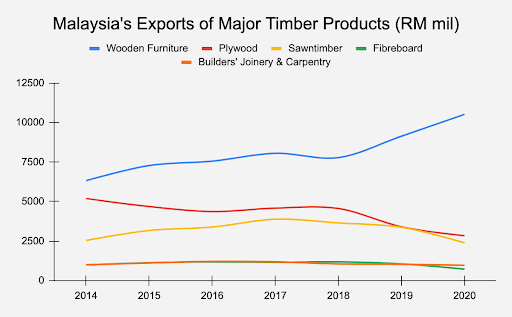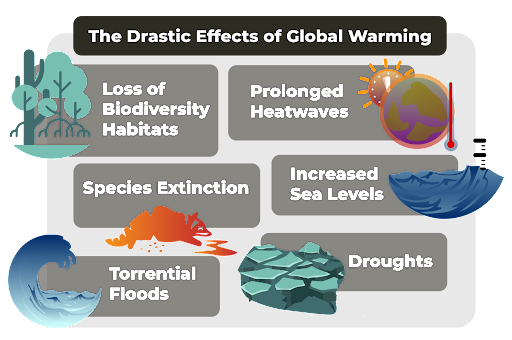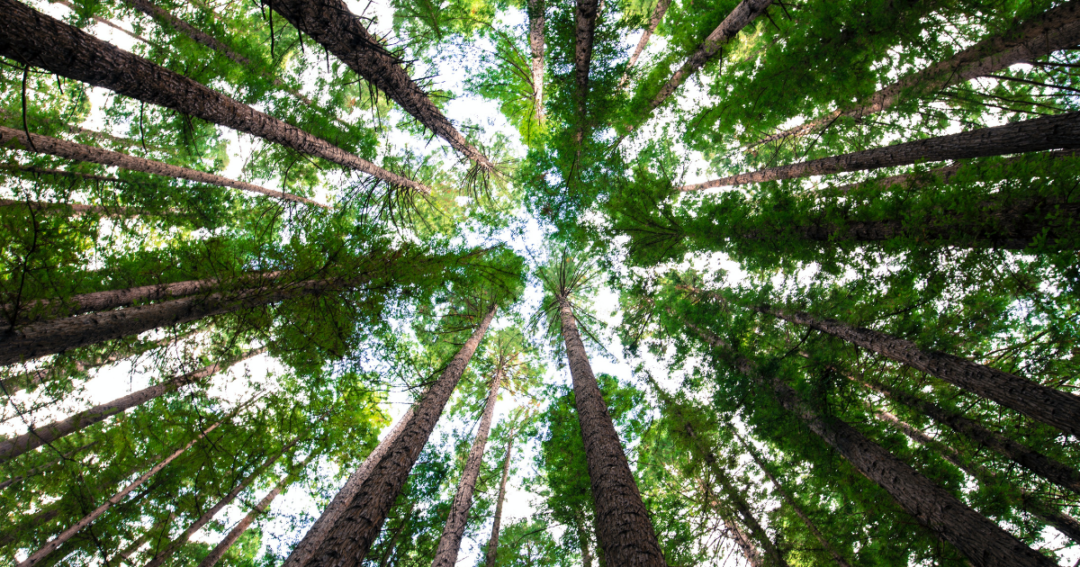(Note: This is a 7-min read)
TLDR: Timber is used in many products, from household furniture to office supplies. These high demands create a relatively stable market, which does not fluctuate much even during the pandemic last year. However, this industry has several downsides, including deforestation, which causes flash floods, landslides, and other environmental effects. Ata Plus’s new issuer is looking to tackle this issue head-on. They will be starting their equity crowdfunding campaign soon and they will be raising funds to create a reforestation project solution that can sustainably contribute to more timber and raw materials production to meet industry demands.
Forestry industry around the world and in Malaysia
The forestry industry has been around since before the industrial revolution, where timber and firewood were the basic resources for energy, construction, and housing. According to a report from the Food and Agriculture Organization of the United Nations (FAO), Malaysia is one of the few remaining heavily forested tropical countries with 20.06 million hectares of natural forest, contributing to 61 per cent of the total land area. The forestry industry has been around since before the industrial revolution, where timber and firewood were the basic energy, construction and housing resources. Timber is the primary forest product in Malaysia, although non-timber forest products (NTFPs) such as rattan, bamboo, firewood, charcoal, damar, palm, wood-oil, gums/resins and medicinal plants are also harvested. Secondary products from the forest industries include sawn timber, plywood, veneer, particleboard, blockboard, fibreboard, medium-density fibreboard, mouldings and furniture.

Source: Malaysian Timber Council
Based on the 2020 annual report from the Malaysian Timber Council (MTC), eight timber products exported from Malaysia are ranked within the Top 10 and Top 20 globally. The main export destination for Malaysian timber and its products in 2020 is the United States at RM7.45 billion, followed by Japan at RM2.73 billion. The top 10 export markets accounted for 78.3% of the total export of Malaysia’s timber and timber products in 2020. Meanwhile, major timber products especially wooden furniture has seen remarkable growth in the past 2 years, increasing by 17.4% year-on-year in 2019 and 15.1% year-on-year in 2020. However, exports of Plywood and Sawntimber saw continued decline within the same period.
It can be said that the COVID-19 pandemic has not affected the trading activities of timber, thanks to the approval to operate during the Movement Control Order (MCO) which was first imposed on 18 March 2020. Looking ahead, MTC expects that the recovery in the timber industry could accelerate in 2021 due to the progress of vaccinations and low infection numbers in Malaysia’s key export markets such as the United States, Europe, Japan, China and Australia. However, multiple risk factors can tilt the growth trend downwards, including the continued MCO to curb the spread of a new variant of COVID-19.

Problems towards the environment
As we know, wood is used in many products around the world. Therefore, demand for timber is high. This high demand creates a problem for the environment as people go to lengths and illegally cut down trees to fulfil these demands. It can be seen that the Earth that we are living in right now is suffering and this is partly caused by the high levels of pollution, constant food waste and deforestation. The result of these actions is severe global warming via longer droughts, prolonged heat waves, more torrential floods, increased sea levels, loss of biodiversity habitats and species extinction. In January 2021, the World Wildlife Fund (WWF) released a report about the state of the world’s deforestation problem and 24 “deforestation fronts,” or places where large forest areas are under threat. The study concluded that 106 million acres (43 million hectares) of forest around the world have been stripped away over the last 13 years.

The uncontrolled cutting of trees around the world has caused many issues. One of them is the loss of animal and plant species due to their loss of habitat. The trees of the rainforest that provide shelter for some species also provide the canopy that regulates the temperature. Deforestation results in a more drastic temperature variation from day to night, much like a desert, which could prove fatal for many inhabitants. In addition, the lack of trees also allows an increased amount of greenhouse gases to be released into the atmosphere.
Meanwhile, this could also help control the level of water in the atmosphere by helping to regulate the water cycle. In deforested areas, there is less water in the air to be returned to the soil. This then causes dryer soil and the inability to grow crops.
In Malaysia, deforestation is also a problem that needs to be quickly addressed. Despite reforestation and replanting policies, there is a lack of government regulations, which means that much more illegal overlogging has been done in the rainforests, increasing the likelihood of floods and soil erosion. Consequently, the country is facing an unprecedented shortage of raw timber supply and current demands cannot be met with many sawmills now shutting down due to lack of timber. Because of this, the Malaysian Orang Asli (Indigenous people) community is greatly affected since they depend mainly on the forests for income and survival.

Ways to prevent deforestation
To avoid the problems associated with deforestation, we should act quickly to plant more trees rather than cutting them down. Reforestation is indeed a tedious task as it takes time for the trees to grow and harvest fully. However, several trees take a short time to mature, such as the Paulownia trees, which can grow to maturity in 4-6 years, produce strong and lightweight timber, and they can regenerate multiple times after being harvested. Hence, Paulownia trees are seen as more affordable and sustainable in the long run. To increase the effectiveness of reforestation, abandoned lands such as mining sites can be used to plant these types of trees and further increase the supply of trees in the country.
Consumers should also play a big role in helping reduce deforestation activities. According to WWF, the pulp and paper industry, which is one of the largest industries in the world, is greatly affecting the forests of the world. The production of products such as paper, tissue, and packaging is responsible for the utilization of 40% industrial wood globally. This harvesting of trees for the pulp and paper industry imposes some serious threats to the forest ecosystems. Therefore, consumers can reduce their consumption of these items and lower their demand in the market. Apart from that, consumers could also increase their support for companies that are committed to reducing deforestation. Examples of such organizations are the World Wildlife Fund (WWF) and Greenpeace. By either joining as a volunteer, making donations, or even investing in them, we can support these organizations in their cause against deforestation.
How M&H can help and solve the deforestation problem in Malaysia
One such company that plans to combat the deforestation problems in our country is M&H Global Plantation Sdn Bhd. They are a reforestation company that aims to create a reforestation movement project solution that can sustainably contribute to more timber and raw materials production to meet industry demands, while also offering work and education opportunities for the Orang Asli community.
Their proposed solution is to use abandoned land and mining sites estimated to be nearly 740,000 acres as sites to continue their reforestation movement. The company uses Paulownia trees, which they have invested in intensive research & development. They focus on developing disease-free and uniform size Paulownia trees to plant on their farm. As already pointed out, these trees can quickly grow and are more sustainable than other trees. With more trees planted, we can avoid deforestation and slowly save the environment. Stay tuned for the upcoming Equity Crowdfunding Campaign by M&H and learn more by visiting the Ata Plus website.
Author Profile

- I'm an analyst that is passionate about technology & innovation. Companies such as Google and Apple inspire me with new products that simplify our everyday lives.
Latest entries
 PerspectivesDecember 9, 2021Is Real Estate Still a Hot Investment Option?
PerspectivesDecember 9, 2021Is Real Estate Still a Hot Investment Option? AgricultureNovember 22, 2021Gaining “Durian Runtuh” Out of the King of Fruits
AgricultureNovember 22, 2021Gaining “Durian Runtuh” Out of the King of Fruits FoodOctober 8, 2021Healthy Bites, Healthy Life!
FoodOctober 8, 2021Healthy Bites, Healthy Life! CrowdfundingSeptember 27, 2021Infusing Technology to transcend the eyewear industry!
CrowdfundingSeptember 27, 2021Infusing Technology to transcend the eyewear industry!





No Comments